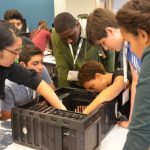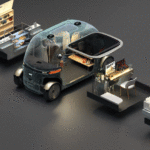As 3D printing becomes more crucial in our daily lives, so does the need to establish educational programs for it. This is a very popular notion of course, but it becomes difficult in practice when considering far flung areas like Nepal. There are financial and technological hurdles that make it difficult to bring the same level of expertise or opportunity, especially when the core issue is that of a wealth gap. Two Rosemont Tech Instructors, however, have taken up the onus of bringing an educational program to the region.
The two instructors, Peter Byron and Rishi Shreshtha, plan to spend 4 weeks in Nepal. They believe that the program will be a crucial relief effort. The team aren’t just teaching the Nepali people about standard printing, but also prosthetic printing. An area such as Nepal does not have the proper access to medical facilities, especially imported ones. Consequently, the printed option might be the best course of action for the rural regions of the country.
Both instructors are colleagues at Rosemont Technology Centre. Now, they’re on a trek half-way across the world. Rishi Shrestha was born in Nepal and wants to return just to help his fellow countrymen. “The goal is to help them over the course of a month,” Byron explained. “Work with some recipients of them, and leave with them set up and ready to produce anywhere from 100 to 200 hands.”
3D Printing Relief & Educational Program
Programs like this can be pivotal for ares with floundering healthcare facilities. This particular program was the result of a crowdfunding campaign that allowed the two to gain equipment that can create artificial limbs in about a day.
Both instructors have set out on a noble goal. Over the course of the month they could helps 100’s of people, but over time they will have helped thousands just by establishing a framework and new way for doctors to handle prosthesis.
As Shrestha puts it: “I just want to see them smile“.
Featured image courtesy of CTV Montreal.












